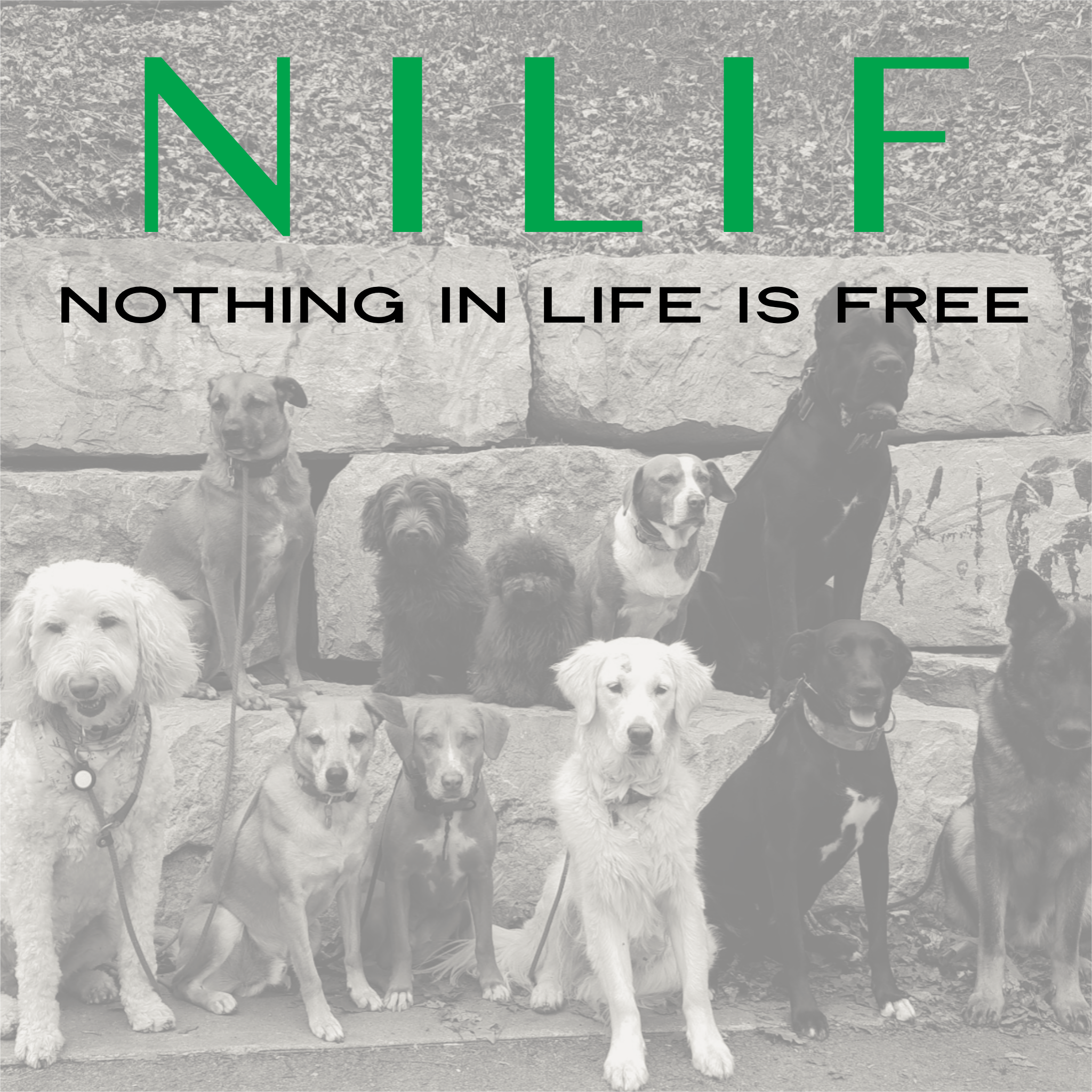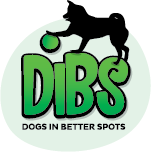 What is NILIF?
What is NILIF?
Nothing in Life is Free (NILIF) is a non-confrontational positive reinforcement technique that is used to improve your dog’s behaviour by building their confidence through clear rules and rewarding them for good behaviour. Having your dog work for everything they want teaches them to trust and accept people as their leaders and establishes control over food, toys and attention in the house.
The program is easy to incorporate into everyday life, and can be used by all people, regardless of age, size or personality type.
When to use the “NILIF” Approach
- Shy or Fearful dogs: Timid dogs can become stressed because they cannot handle the responsibility of being the one in charge. NILIF takes that pressure off of them by teaching them to trust you as a leader which provides a sense of security and through earning rewards they build their confidence.
- Pushy, rude or bossy dogs: Many dogs learn to get what they want by being affectionate but pushy. They have learned from experience that everything comes to them for free. NILIF helps teach your dog they have to work for what they want and to respect your authority.
- Separation Anxiety: Some dogs become anxious and clingy because they can’t get attention while you’re gone. NILIF provides stability in their life because they know what’s coming next and thus lower stress levels. It also shows them that in order to get attention, they must follow your commands in order to earn rewards that can build their confidence.
- Aggression toward family members: Some dogs see their ability to demand attention as confirmation that they are the leader but become difficult when told to “sit” or given a demand. This is because there is a lack of stability because there they are unsure if they are the leader or you are. By making it clear you are the one in charge, it can help dissolve unwanted behaviours.
- Aggression toward other people or dogs: Some dogs when faced with “strangers” can become fearful or territorial. Because your dog’s attention will be focused on what the new person will give them if they perform, their emotional response changes from fear or aggression to excitement and anticipation.
NILIF is effective for a wide variety of problems. In timid dogs or dogs with separation anxiety, they become more relaxed because they have nothing to worry about, their owner is in charge. A dog that is more aggressive or pushy learns that you are the one in charge and life can be more enjoyable without being the leader. Even if your dog doesn’t have any of these problems, NILIF can be helpful for minor issues such as resource guarding, demanding attention and just establishing boundaries and guidelines.
Rules of NILIF
You need to first teach your dog some basic commands such as sit, down, stay and come. Once the dog knows the basic commands, you can start NILIF training.
- Your dog must “work” for all the good things. This means the dog must obey a command such as sit, down, stay, etc. in order to be rewarded with anything the dog wants or likes. Examples of anything a dog wants or likes are:
- being fed
- getting treats
- being pet/brushed
- having a leash put on/taken off
- opening the doors to come inside/go outside
- being invited onto the furniture
- being played with
- being spoken to
- going in/out of the car
- greeting a guest
- Pushy demanding behaviour is ignored. Pushy, demanding behaviour can be anything your dog does to get your attention. This includes whining, pawing, nudging, mouthing, jumping on, staring at, and barking at you. Ignoring them is giving no attention at all. Even scolding, saying “No” or pushing the dog away is a form of attention and telling them they are more in charge than you. Simply – ignore!
- Give the command once. If the dog doesn’t obey, walk away, turn your back or just ignore them. A few moments later, give them another chance to earn something.
- Everyone in the household and anyone who interacts with your dog on a regular basis must follow the NILIF rules. Everyone means spouses, significant others, dog walkers, neighbours and even children. Dogs can view children as either playmates or lower-ranking members of the “pack”. NILIF teaches dogs to view children as leaders.
- Be patient. It may take your dog sometime before they realize they need to work for the things they want.
Examples of Using NILIF
- Mealtime: Have your dog “sit” before giving them their food.
- Playtime: Call your dog to you, have them “sit” and then play with them. You are the one initiating the attention and playtime, not them.
- Fetch: Have your dog “drop” the ball before you throw the ball.
- Walks: Have your dog sit before putting on its leash and sit at the door while the front door is opened before starting the walk.
- Cars: Have your dog sit and wait while the car door is opened and listen for the cue word “Ok” before getting in or out of the car.
- Bed or Furniture: Teach your dog to wait for you to say “OK” to get on the bed and has to get down if you say “Off”.
- Petting: If a dog is pushy and demands attention, ask them to do a trick before petting them.
- Chew toys or treats: Teach your dog a trick and request that special trick before giving a treat.
REMEMBER: NILIF does not mean you have to restrict the amount of attention you give to your dog: it just means they get the right attention at the right time!
Sources:
https://www.mygracevet.com/downloads/nothing-in-life-is-free.pdf
https://phs-spca.org/wp-content/uploads/2015/02/NothingInLifeIsFree_dog.pdf
https://www.sfspca.org/sites/default/files/dog_commands_nothing-in-life-is-free.pdf
http://fourpawsk9training.com.au/wp-content/uploads/2016/03/NILIF-Program.pdf
https://www.petsradar.com/advice/reduce-separation-anxiety-in-dogs
http://thefosterpack.com/nothing-in-life-is-free/
